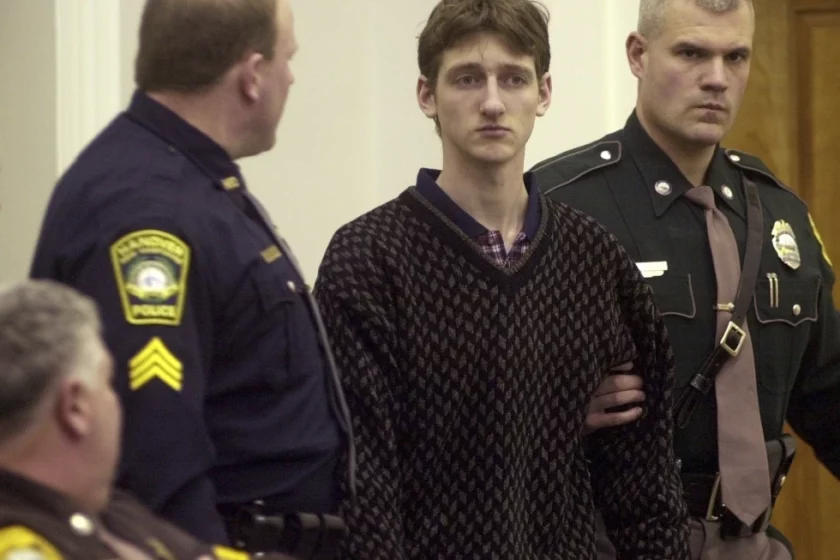Convicted Dartmouth Killer Challenges Life-Without-Parole Sentence Under New Hampshire Constitution
Robert Tulloch, who was convicted as a teenager for the 2001 murders of Dartmouth professors, is challenging his life-without-parole sentence under the New Hampshire Constitution.
BollywoodFever: Robert Tulloch, who pleaded guilty to the 2001 stabbing deaths of Dartmouth College professors Half Zantop and Susanne Zantop, is now challenging his life-without-parole sentence, arguing that the New Hampshire Constitution prohibits such sentences for juveniles. Tulloch was 17 at the time of the murders, which he and his best friend, James Parker, committed as part of a plan to rob and kill people before fleeing to Australia.
A hearing was scheduled for Wednesday in Grafton County Superior Court to address legal issues surrounding Tulloch’s case. At 41, Tulloch is awaiting resentencing, which stems from a 2012 U.S. Supreme Court decision that deemed mandatory life sentences without parole for juveniles “cruel and unusual punishment.” This decision has since been made retroactive, giving juvenile offenders like Tulloch a chance at reduced sentences.

Tulloch’s lawyer, Richard Guerriero, argues that the New Hampshire Constitution’s prohibition against “cruel or unusual punishments” should include life-without-parole sentences for those who committed crimes as children. Guerriero contends that the state constitution offers broader protections than the U.S. Constitution and that life without parole should not apply to juvenile offenders without findings that the individual is incapable of rehabilitation.
The American Civil Liberties Union (ACLU) of New Hampshire and other organizations have filed briefs supporting Tulloch’s case. However, prosecutors maintain that the argument for leniency is unconvincing and may still seek a life-without-parole sentence.
Tulloch’s case is one of several involving juvenile offenders in New Hampshire awaiting resentencing. His co-defendant, James Parker, who was 16 at the time of the crimes, pleaded guilty to second-degree murder and was released on parole in June after serving nearly 25 years. Parker testified against Tulloch, who originally intended to plead insanity but ultimately admitted guilt to first-degree murder.
The Zantops, prominent members of the Dartmouth community, were targeted by the teens as part of a broader plan to rob households. They had been turned away from four other homes before choosing the Zantops’ residence due to its secluded and affluent appearance. The crime shocked the academic community, and both Parker and Tulloch were arrested weeks after the murders.
Also Read Other Articles, UK Weather Warning: Heavy Rainfall and Strong Winds Set to Bring Flooding and Power Cuts
Two Injured on United Airlines Flight After Midair Collision Avoidance Near San Francisco
Economics Major Predicts U.S. Recession Using ‘Stripper Index’ From Sex-Work Data
Police Investigate Murder of Teenager Found Stabbed in Norwich Flat















